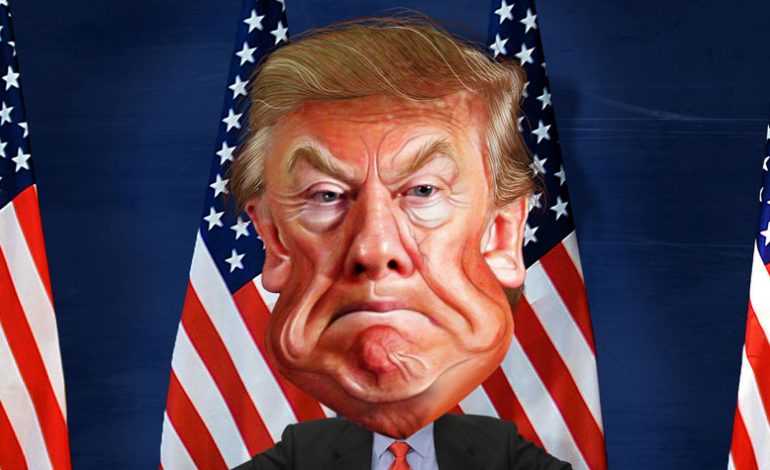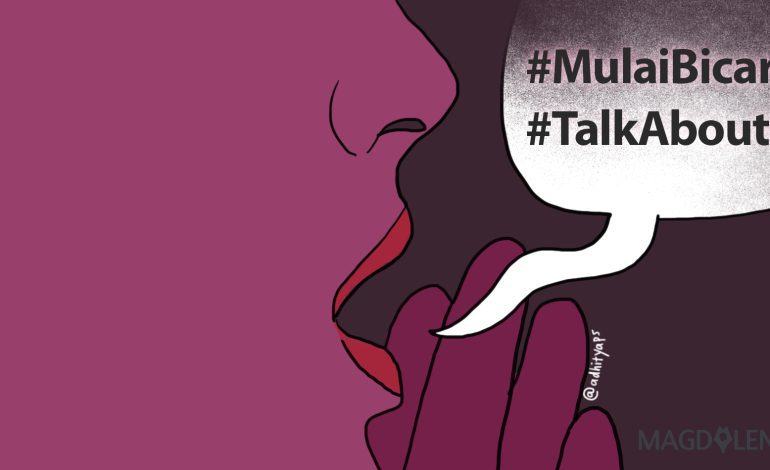Letter from America: A Nation of Fears

I came out of my dance school a little deflated, without the usual exercise high. It has been two weeks since I last danced, and this morning’s class, which was actually not a dance class, but an exercise class fancying itself as an offshoot of ballet (it’s not!) was especially hard, because it was taught by a substitute teacher, who, naturally, made us do things we’re not accustomed to doing. Don’t we all hate change?
In the Metro, sitting on the second row near an exit door, I read an article posted on Facebook about Milo Yiannopoulous, the anti-hero of the moment, the poster boy for misogyny, a professional alt-right provocateur whose existence I would have never been aware of had I not recently read a story on him being banned from Twitter for abusive tweets to Leslie Jones. This is a guy whom I would have ignored had I not been so disturbed by the American election.
On the inward-facing priority seats ahead of me, an old man in crisp white shirt and sports jacket with a reusable shopping bag was nodding off. Across from him was a family of man, woman and their college-aged daughter.
The old man opened his eyes and suddenly addressed the man in front of him.
“Did you see the acceptance speech at the RNC last night?” He asked in a friendly way that made me first think they were traveling together. The other guy looked a little taken aback, but gamely said he didn’t.
“I think this is it,” said the old man.
I was halfway into the article, but quickly became distracted.
“Are you going to vote for him?” Asked the younger guy
“Who else am I going to vote for?”
The old man spoke above the roar of the train, he had a booming voice and a thick southern drawl. I rolled my eyes, knowing that I would never go back to my article now, as long as he was still on that train.
“Why do you vote for him?” asked the other guy gently after a while. You can tell he did not really want to go into this, but was being nice and not wanting to be rude to the old guy. They are definitely from out of town.
“Because I think this government is a mess. And the man upstairs,” he pointed his index finger upward, “has vetoed the Clintons.”
I squirmed in my seat and found myself unable to stop shaking my head.
“I’m 75 years old and I voted for Clinton once,” he continued then gave some reasons, which didn’t sound very put together to me.
The conversation just kind of stopped there. The old guy turned to the man’s wife and daughter, asking them something or other about where they’re from. They smiled politely, not willing to engage.
Then the old man turned to the guy facing him on the seat in front of me.
“I want to live on the Indian Ocean,” he said amicably, “Do you know where that is?”
The guy, who looked South Asian, replied but I couldn’t hear. The old man said that he had lived in DC for 49 years, that he’s from Tennessee, and that he was buying his son’s groceries. The two had a short conversation that sounded friendly.
When the metro stopped, and the old guy checked to see which station it was and whether he was supposed to get out there, the Asian man told him it wasn’t and that his stop wasn’t until the next few stops. I secretly harbored envy and admiration for the Asian man for being gracious to a person who would be voting for a candidate who had spouted so much hatred towards immigrants like him.
The thing is the old man was nice. He spoke always with a smile and he sometimes laughed gently. He had the discoloured skin typical of elderly East Asians and his face looked as if he might be Eurasian. When the Indian or Pakistani-looking man – along with the family of three got off at the next station – the old man shook hands with him.
Another batch of passengers went in. An African American woman sat across from the old guy, where the family was sitting, and he greeted her, talking about how the weather was going to turn 100 over the weekend and how it hadn’t been this hot for years.
“I wish I lived in Puerto Rico,” he said.
“You wish you lived in Puerto Rico?” the woman asked back, amused but uncommitted.
Then he looked around as if searching for other people to talk to. I felt kind of sad. The man is probably lonely. Maybe he lives alone and the only way he can have a conversation is by chatting up people at public places like the Metro.
I felt bad because I instantly took a dislike to a person because of their politics. The whole scene depressed me, reminding me of the divisive election in Indonesia in 2014, and how I have since put some friends in my mental list of people I’m not crazy about, after I found out their political choice.
The thing that I find disturbing is that people like him, who may be nice, are so misguided and deceived by the cynical people in politics. And I’m not just talking about Donald Trump. I’m talking about the GOP, how it has for years run a toxic campaign that feeds fear into the minds of their constituents: fear of their country being swarmed by Mexicans, fear of Muslim terrorists, fear of globalism, fear of their guns being taken away by the federal government, fear of the gays destroying traditional family values, fear of people who prefer “Happy Holidays” over “Merry Christmas”, fear of taxes, and on, and on, and on.
I’m talking about people of the likes of House Speaker Paul Ryan, the supposed “fiscal-conservative” guy who hypocritically criticized Trump for a lot of things, even calling him out for “text-book racism”, only to spinelessly endorse him later. Fuck you, politicians!
I’m not saying all Republicans are bad. And I’m not saying all Democrats are good. There are many good politicians of both parties out there, in the United States and in other countries, including Indonesia. I know my husband’s heart is in politics and some day, eventually, I probably would support him, because I know it comes from the purest intention to serve, to be of use, to contribute to Indonesia, the country he loves. I even thought at some point that I might want to run for office, if only I wasn’t such a proud and thin-skinned introvert, who sucked at asking favors. Which is why I never, ever will be a cynic. I’m just not made that way. I care too much.
This election, on the other hand, has come to this point, because people who don’t care trump people who do. Cynical people like Trump, like Milo Yiannopoulous, like Sean Hannity and the whole crew at Fox News channel, like Alex Jones and all the talking heads of conservative radio. They are responsible for creating the scary lynch mob-like people at the Republican National Convention this week, the apparently unthinking, unfeeling people who cultishly worship Donald Trump like he’s their savior.
There are mainly two groups of people in America right now: those who are afraid of Trump’s presidency, and those who are afraid of all the things Trump has been feeding their fears with. I think Obama perfectly captured the latter in his much criticized campaign speech in 2008, when he said bitter Americans “cling to guns or religion or antipathy toward people who aren’t like them or anti-immigrant sentiment or anti-trade sentiment as a way to explain their frustrations.”
One Trump’s supporter was quoted by The Washington Post recently: “I want to bring this country back to where it used to be…. It all comes back to basics…. God, guns and guts. And patriotism.”
This made me shiver. What about equality, justice or compassion? What about all the other things that make a society worth defending?
I love America. I was “formed” here. The Devi people know now is the sum of a nomadic Indonesian childhood, the world-weary journalist phase, and those independently growing up years in the United States in between. After Indonesia, this country is where my heart will always be, but I’m getting scared by the minute. I’m scared of how flimsy our grasp of freedom is, how flawed our illusion of reality is, and what a catastrophe a collective delusion can bring.
Living in Washington DC now, I am far from the real American experience. People here are naturally more liberal and more inclusive. They are accustomed to diversity. They are aware that it is their strength. The rest of the country, however, in small towns where I used to live and other parts of America, is a different story.
The America I see in DC or on TV and mainstream media is post-racial, gender-neutral, politically correct America. Even my Facebook friends are this way. What few Trump supporters there might be I wouldn’t know, since, I suspect, they would never admit it. The ideological Republicans, who are usually mildly political, are extremely quiet on my social media timelines, too embarrassed that a man so epically incompetent, unscrupulous and incoherent and one who is openly racist has become their party’s standard-bearer. But in those other parts of the country, the increasingly nativistic attitude, the irrational refusal of even a tiny measure of gun control, the polarized politics, the racial tension – they are more personal, closer and disquieting.
I wonder how a nation can be so widely diverging. How can half of the people be this progressive and compassionate, while the other so stubborn and even belligerent in holding on to their fears and prejudices?
But I sometimes forget that this is a struggle faced by other countries too, particularly in the western world, where white people are feeling a growing threat to the “superiority” of their race, where physical and mental borders are equally porous. Perhaps centuries of imperialism and colonialism and western capitalism have made them forget that everything changes. Eventually.
Like my dad used to say: “Life is like a wheel – sometime you’re up, sometimes you’re down. So never take your success for granted.”
And even in Indonesia, on a smaller scale and in a different context, the battle is brewing too, pitting fundamentalists who want to turn it into an Islamic country against those who want to keep religion a private matter.
Maybe, also, like my hard barre class with the substitute teacher this morning, or my instant dislike of that nice and – possibly lonely – old Trump voter, the problem is in us.
Read Devi’s piece on Indonesian Americans’ involvement in US politics and follow @dasmaran on Twitter.
Illustration by DonkeyHotey.






















